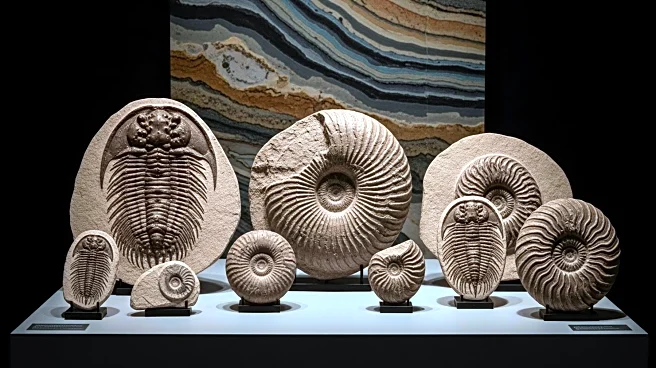What is the story about?
What's Happening?
Recent studies on Cambrian fossil discoveries have provided significant insights into the evolution of complex life forms. According to a study published in Nature, the Cambrian explosion, which began around 540 million years ago, was not driven by fundamentally different genes but by other factors. Marine invertebrates like cnidarians and ctenophores emerged as some of the first multicellular animals with multiple tissue types, marking a significant step in the complexity of animal life. These findings suggest that the evolution of complex animals was facilitated by new patterns of gene regulation and expression, rather than the introduction of new genes.
Why It's Important?
The study's findings challenge the traditional view that the evolution of complex life was primarily driven by the emergence of new genes. Instead, it highlights the importance of gene regulation and expression in the development of complex organisms. This has significant implications for our understanding of evolutionary biology and the mechanisms that drive the diversity of life on Earth. By understanding these processes, scientists can gain insights into the evolutionary history of life and the factors that have shaped the development of complex organisms.
What's Next?
Further research is likely to focus on exploring the specific mechanisms of gene regulation and expression that contributed to the evolution of complex life. Scientists may also investigate how these processes have influenced the development of other multicellular organisms throughout evolutionary history. This could lead to a deeper understanding of the genetic and molecular basis of evolution and the factors that drive biodiversity.
Beyond the Headlines
The study also raises questions about the role of environmental and ecological factors in the evolution of complex life. Understanding how these factors interact with genetic and molecular processes could provide a more comprehensive view of the evolutionary history of life on Earth. Additionally, the findings may have implications for the study of other evolutionary events and the development of new approaches to studying the history of life.
















